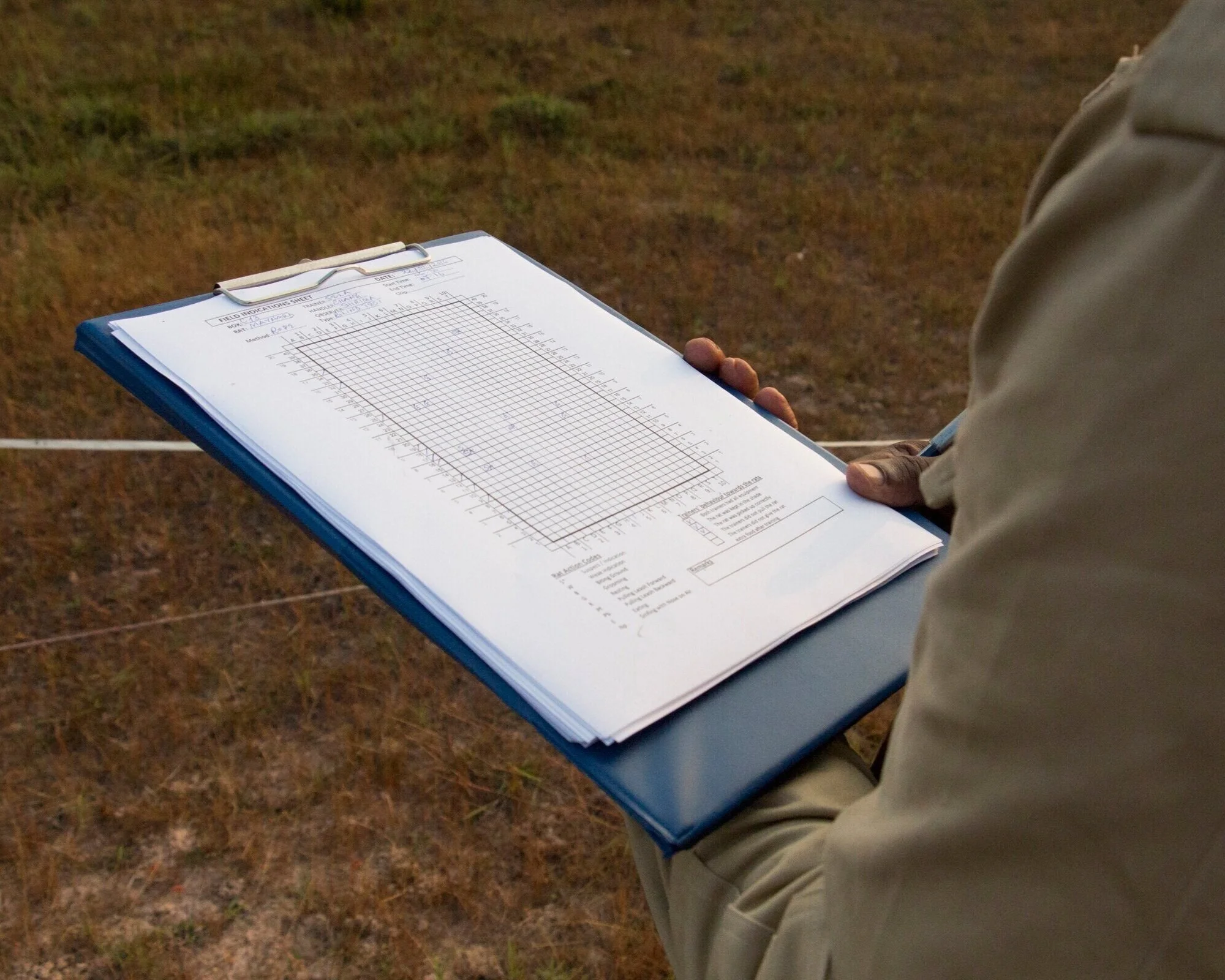![African giant-pouched rats Maynard and Esperhence take part in an exercise to detect landmine explosive residue in Siem Reap, Cambodia, January 2016.]()
African giant-pouched rats Maynard and Esperhence take part in an exercise to detect landmine explosive residue in Siem Reap, Cambodia, January 2016.
![Esperhence has his harness fitted before he begins work, January 2016. The rats are cared for with the same love as many pets, with sunscreen applied to their senstive noses and ears before each day's work.]()
Esperhence has his harness fitted before he begins work, January 2016. The rats are cared for with the same love as many pets, with sunscreen applied to their senstive noses and ears before each day's work.
![African giant-pouched rat Ron in the carry case used to transport him to the field. Ron has been trained by Belgium organisation APOPO to detect landmines.]()
African giant-pouched rat Ron in the carry case used to transport him to the field. Ron has been trained by Belgium organisation APOPO to detect landmines.
![Trainer Somaly works with Fredrick. Using rats to detect landmines not only speeds up the clearing time considerably compared to other detection techniques it is also lower risk than using human de-miners exclusively.]()
Trainer Somaly works with Fredrick. Using rats to detect landmines not only speeds up the clearing time considerably compared to other detection techniques it is also lower risk than using human de-miners exclusively.
![A trainer works with African giant-pouched rat Ron during a training exercise to detect landmine explosive residue in Siem Reap, Cambodia, January 2016. An area is marked out for each rat to survey.]()
A trainer works with African giant-pouched rat Ron during a training exercise to detect landmine explosive residue in Siem Reap, Cambodia, January 2016. An area is marked out for each rat to survey.
![Esperhence is guided by his trainer. Rats can effectively survey the land in a fraction of the time it takes humans, with a much lower risk of injury.]()
Esperhence is guided by his trainer. Rats can effectively survey the land in a fraction of the time it takes humans, with a much lower risk of injury.
![Ron is currently three years old, and is expected to live and serve as a working rat until age eight. Currently, no rats have been lost working in the field.]()
Ron is currently three years old, and is expected to live and serve as a working rat until age eight. Currently, no rats have been lost working in the field.
![Tanzanian Shirima Vendeline marks the areas one of the rats trained by APOPO has detected explosive residue during a training exercise in Siem Reap, Cambodia, January 2016.]()
Tanzanian Shirima Vendeline marks the areas one of the rats trained by APOPO has detected explosive residue during a training exercise in Siem Reap, Cambodia, January 2016.
![A handler leads Maynard back to his carry case after finishing a training exercise.]()
A handler leads Maynard back to his carry case after finishing a training exercise.








